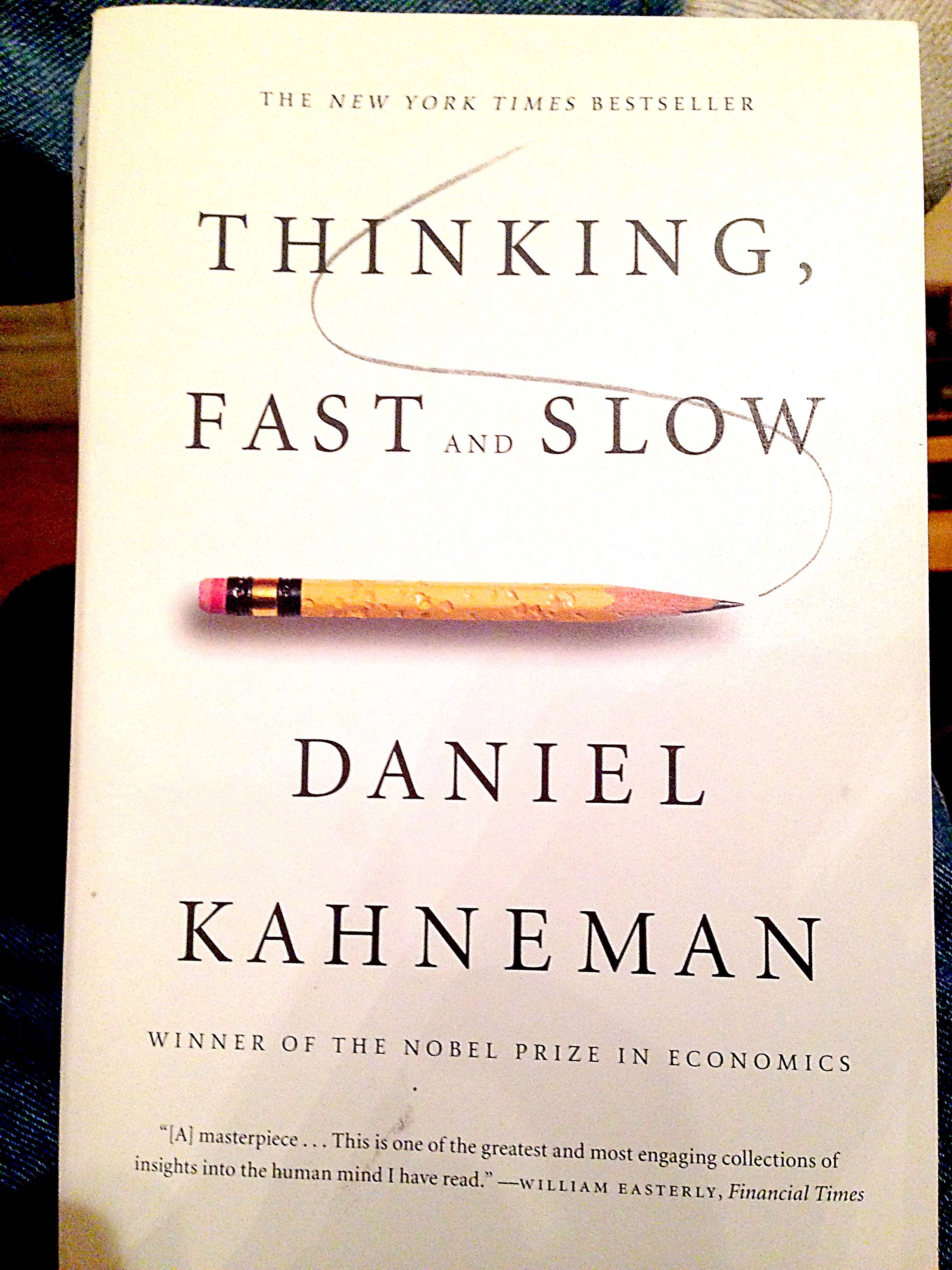[Update] Much of This Has Been Called Into Question
I don’t have time to look at rewriting the whole article right now, but if anyone does come across this, I think it is important to link an article that describes how much of this field has been called into question. Please read the article and then come back to read this deconstruction for a fuller understanding: Reconstruction of a Train Wreck: How Priming Research Went Off the Rails.
The More I Learn, the Less I Know
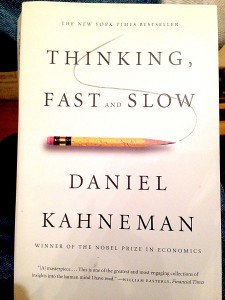 Have you ever read a book that radically transformed not just WHAT you think, but HOW you think, and WHY? A book that literally forced you to re-examine how you make decisions on virtually EVERYTHING, from small to large? A book that made you realize just how amazing the human mind is, while equally recognizing the incredible propensity we have for making really stupid decisions, often based on minimal evidence that is then extrapolated to far more than it logically should be?
Have you ever read a book that radically transformed not just WHAT you think, but HOW you think, and WHY? A book that literally forced you to re-examine how you make decisions on virtually EVERYTHING, from small to large? A book that made you realize just how amazing the human mind is, while equally recognizing the incredible propensity we have for making really stupid decisions, often based on minimal evidence that is then extrapolated to far more than it logically should be?
If you’ve ever read a book like that, you probably also know that it is one you’ll need to re-read several times to fully absorb, simply because it’s impossible to do so in one go-round. And if you never have read such a book, may I suggest this one?
Thinking, Fast & Slow by Daniel Kahneman
This book was first recommended to me by a dental colleague whom I greatly respect, and from whom I’ve learned a tremendous amount, Dr. John Khademi. A brilliant clinician and analytical thinker, he’s on the leading edge of technology and technique in the field of endodontics. We were in the midst of a discussion on a dental forum, on the same side of an argument with another colleague who was espousing several ideas that were simply unsupported by research. That was late summer 2013, and I’m just now (late March 2014) about to finish. I started it at the same time as The Birth of Christianity, which I recently reviewed, but put aside so I could concentrate on 1 book at a time.
Who Is Daniel Kahneman?
Quite frankly, until the book was recommended to me, I’d never even heard of him, but as I’ve learned more about his remarkable career (catch up on a lot of the basics on Wikipedia), I’ve been astounded to realize the impact that he’s had on modern psychology and economics. Author, researcher, psychologist, and winner of the 2002 Nobel Prize in Economics, he was a driving force in the understanding of human cognition, or HOW we think what we think, and why it’s so often wrong. His work on biases and heuristics (the mental shortcuts used by our subconscious to help us deal with the overwhelming complexities of our environment) was truly foundational.
For more detail on the depth and breadth of his influence in multiple fields, the Guardian magazine put together some brief summaries from other authoritative figures in this excellent February 2014 article on this book and Kahneman’s work, and there are a number of additional articles linked there that I recommend.
How Our Brains Work – Not Very Well
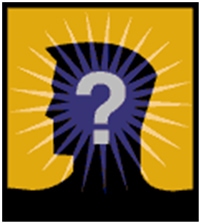 Most of us like to think that we are pretty rational, logical people, and that when we make a decision, whether small or large, fast or slow, we’re doing it with full consciousness and awareness of all necessary information to make a sound choice. There’s only one little problem with this assumption:
Most of us like to think that we are pretty rational, logical people, and that when we make a decision, whether small or large, fast or slow, we’re doing it with full consciousness and awareness of all necessary information to make a sound choice. There’s only one little problem with this assumption:
IT’S WRONG!
OK, you’re probably saying, “Chip ole buddy, maybe YOUR brain doesn’t do a very good job, but I know that I’m not that way.” Well, let me just say, if that’s what you think….YOU NEED TO READ THIS BOOK! 🙂
I mean, without trying to brag, I’m a pretty smart guy. Double-major in both biology and German undergrad, then graduate-level degree; bilingual; created 5 websites on 4 different platforms; played multiple musical instruments, dance and sing; photographer, blogger, voracious reader; perform a wide variety of dental procedures at a very high level of proficiency; and more. IOW – I’m no dummy, but I felt dumber while reading this book than at any other time in the last 20 years! Over and over again, Kahneman presents scenarios that seem fairly simple and straightforward, and then shows you exactly why the “most logical” answer is flat-out WRONG. And after you read his explanations, it’s obvious! By mid-way through the book, though, I was getting a little frustrated – whenever another scenario was presented, it was clear Kahneman was about to provide another such example, but even knowing that it was probably a set-up to make a point…..I STILL got them wrong!
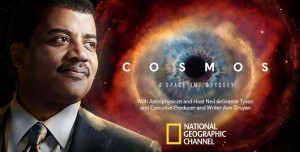 In the March 23rd episode #3 of the new Cosmos TV show on Fox and National Geographic, eminent astrophysicist Neil deGrasse Tyson talked about how humans have searched for patterns in their environment since we first became self-aware. When we find correct patterns, they can be incredibly helpful across a wide variety of subjects. Far too often, however, we see patterns and interpret them to mean one thing, when in fact, the meaning is radically different. Daniel Kahneman was one of the first to systematically approach the question of how and why that happens; although his work didn’t directly touch on cosmology, it is applicable to virtually any field.
In the March 23rd episode #3 of the new Cosmos TV show on Fox and National Geographic, eminent astrophysicist Neil deGrasse Tyson talked about how humans have searched for patterns in their environment since we first became self-aware. When we find correct patterns, they can be incredibly helpful across a wide variety of subjects. Far too often, however, we see patterns and interpret them to mean one thing, when in fact, the meaning is radically different. Daniel Kahneman was one of the first to systematically approach the question of how and why that happens; although his work didn’t directly touch on cosmology, it is applicable to virtually any field.
I’m not going to go into any specifics of the ground-breaking work that Kahneman did here; I’m still working to understand it myself. , so any real attempt to describe it would likely contain too many errors.
Mindfulness is a Powerful Counter
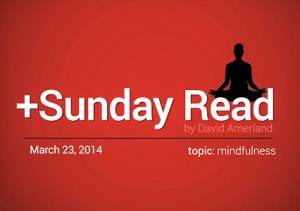 On Google+, a guy whom I’ve come to respect greatly for his thoughtful brilliance (and that’s no exaggeration, this guy is amazing!) is David Amerland. Every Sunday morning, one of the first things I do after walking the dogs and making coffee is to find his Sunday Read, which he posts exclusively on G+. His article on Sunday, March 23rd, 2014 addressed the challenges we face in today’s rapidly changing world, as the heuristics we develop to cope become outdated with accelerating speed. He and I share a love of martial arts, and the ways of thinking/living that tend to come with them, including mindfulness. And while I haven’t gotten to write much about it yet, mindfulness is something that has strengthened and sustained me through many years, since I had Living Buddha, Living Christ by Thich Naht Han as required reading for my 1st Dan test in TaeKwonDo.
On Google+, a guy whom I’ve come to respect greatly for his thoughtful brilliance (and that’s no exaggeration, this guy is amazing!) is David Amerland. Every Sunday morning, one of the first things I do after walking the dogs and making coffee is to find his Sunday Read, which he posts exclusively on G+. His article on Sunday, March 23rd, 2014 addressed the challenges we face in today’s rapidly changing world, as the heuristics we develop to cope become outdated with accelerating speed. He and I share a love of martial arts, and the ways of thinking/living that tend to come with them, including mindfulness. And while I haven’t gotten to write much about it yet, mindfulness is something that has strengthened and sustained me through many years, since I had Living Buddha, Living Christ by Thich Naht Han as required reading for my 1st Dan test in TaeKwonDo.
Mindfulness is that state of mind we experience when we are fully present in the NOW, as Eckhart Tolle describes in his book The Power of Now. When we are fully aware of this current moment – when we feel the wind on our skin, smell the roses, savor every bite of food, experience the meaningfulness of washing the dishes – we are being mindful. And this mindfulness, this presence and awareness, is a powerful tool to help us stop moving so fast, to examine fully the choices and ideas before us, and to consider whether or not we actually are able to make a wise decision, or if we should wait and reconsider.
Logical Fallacies, Anyone?
While I don’t believe that the “Logical Fallacies” memes seen floating around the Web can even be indirectly attributed to Kahneman’s work, I could be completely wrong about that. However, if you’re not familiar with them, in them you will find many of the heuristics and logical errors that people make every day, usually without ever realizing. You can find a pretty thorough listing of logical fallacies on Wikipedia, or you can even purchase a nice poster on www.yourlogicalfallacyis.com. Many, if not all, of these are described at some level in Thinking, Fast and Slow.
Should Be Required Study
The work done by Kahneman and his collaborators over the years is by no means comprehensive, and many others have continued this work into new areas, developed his ideas further, challenged some, etc. And yet, I have to think that this book should be required reading and study at several points in our lives. At the least in high school and in college….if only to help people learn to think, as well as to understand the limitations of how human brains work.
This is a book that I KNOW I will have to re-read to more fully understand it, and I’ll definitely be looking for more books along these lines in the future, after this has had some time to settle in.
Up Next for Review: Buddha by Karen Armstrong, which I read over the last month before bed to soothe my mind. And next on the reading list is Google Semantic Search by David Amerland. Yes, I’m a geek. 🙂
